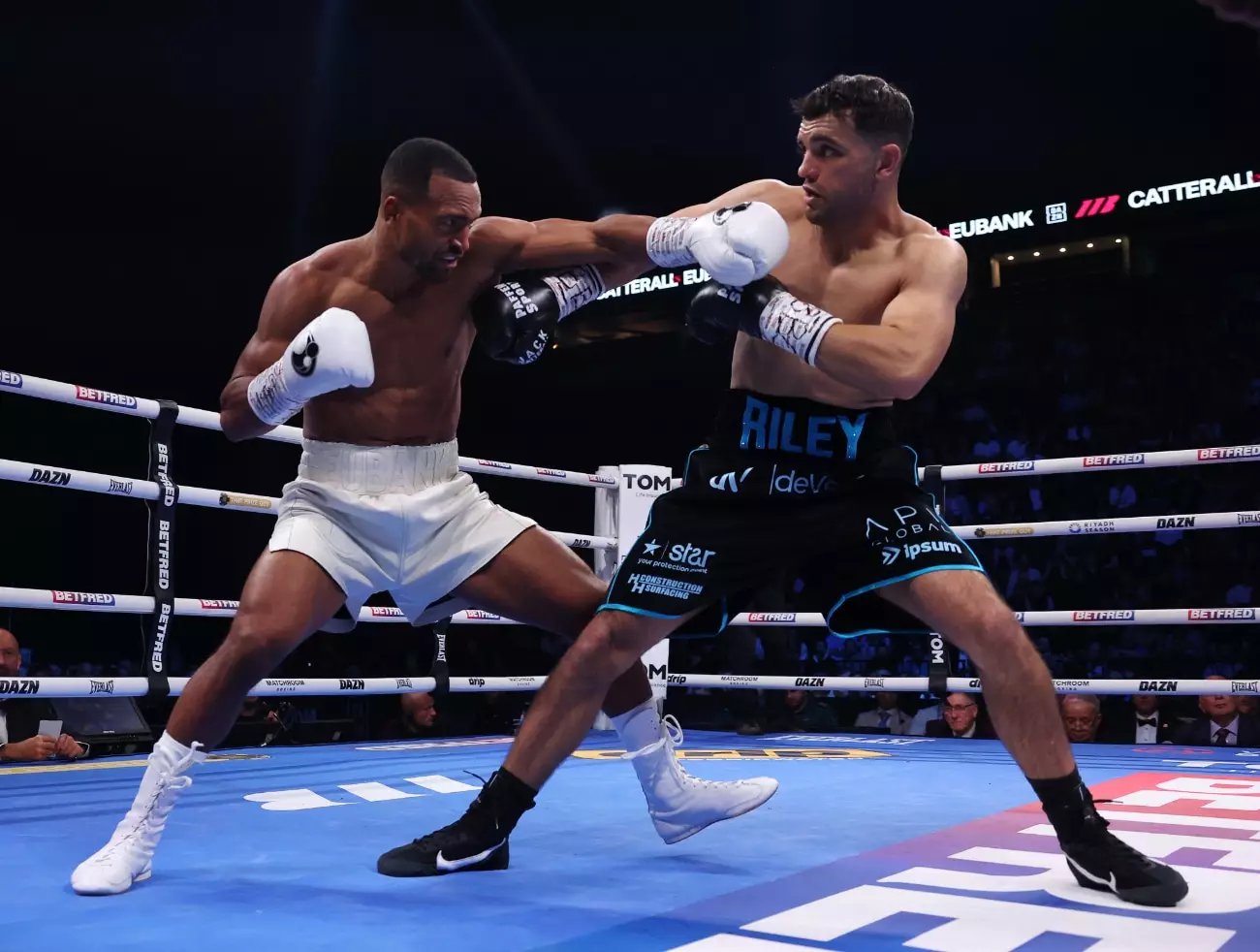Jack Catterall’s victory over Harlem Eubank marks more than just a win; it underscores his resilience and strategic persistence in a sport where setbacks are commonplace but growth is essential. In defeating an otherwise unbeaten contender, Catterall demonstrated that perseverance can trump raw talent alone. Although the fight was marred by an accidental head clash and a premature stoppage, the reality is that Catterall’s ability to shift gears—despite evident physical fatigue—speaks volumes about his mindset. This win doesn’t merely add a belt to his collection; it serves as a statement that he remains a formidable force at 147 pounds, capable of rebounding from disappointment and asserting himself among the elite.
The fights we remember aren’t those with perfect finishes, but those that showcase a competitor’s depth. In that regard, Catterall’s victory is strategic—he survives a difficult round six, navigates through a somewhat underwhelming display, and capitalizes on the opportunity when it’s cut short. These moments reflect a fighter’s true character: one that adapts, endures, and pushes through adversity. His post-fight remarks reveal a man hungry for redemption, eager for a rematch that could finally settle unresolved issues. For fans and critics alike, his latest win is less about the technicalities and more about what it signifies—a steely resolve in the face of challenge.
From Frustration to Ambition: The Path Forward
Catterall’s current trajectory reveals a fighter who refuses to dwell on imperfections. Despite criticisms of his performance—such as sluggishness, reduced punching power, and a tendency to retreat—the larger narrative is his undeniable grit. His recent losses appear to have fueled a renewed ambition, and his desire for a rematch with Eubank is a testament to his stubborn refusal to accept defeat as the final chapter. Instead, he views setbacks as stepping stones towards a greater goal: a shot at a world title.
In the broader landscape of boxing at welterweights, Catterall’s promotional team, led by Eddie Hearn, shows a strategic focus on climbing the rankings. Rather than chasing the big names immediately, they favor building momentum through fights against fringe contenders, such as Lewis Crocker or Paddy Donovan—matches that can serve as measurable tests prior to stepping into the ring with world champions. This approach indicates a pragmatic understanding that patience and strategic matchmaking are crucial for a fighter like Catterall, who needs to reestablish himself as a serious contender after recent disappointments.
What’s particularly commendable is Hearn’s focus on positioning Catterall for a shot at the IBF belt—a move that aligns with a broader vision to elevate his profile. Despite the allure of high-profile matchups against top-tier champions like WBO’s Brian Norman Jr., Hearn recognizes that overreaching too soon could backfire. Instead, the plan is rooted in incremental improvement and controlled progression, which ultimately could serve Catterall best in the long run.
Rethinking Strategy: Power, Pace, and Psychological Resilience
Analyzing Catterall’s recent performance raises questions about how fighters adapt their strategies at different stages of their careers. The criticism of his current style—that he appeared slower, weaker, and less impactful—highlights the importance of physical conditioning and tactical evolution. Catterall’s retreating approach and lack of power suggest either a temporary phase or an area requiring focused development.
The boxing world often champions fighters who display relentless aggression, but Catterall’s approach underscores the importance of boxing IQ—knowing when to conserve energy, when to attack, and how to use distance effectively. His willingness to absorb criticism and formulate a tailored training plan indicates a mature athlete who understands that mechanics must evolve alongside mental resilience.
In terms of psychological strength, Catterall’s ability to remain motivated after back-to-back setbacks is noteworthy. His hunger to “run it back” with Eubank and his belief that his potential was cut short at the crucial moment reveal a mindset ready to embrace future challenges. This mental toughness—refusing to accept finality after a premature stoppage—sets him apart from fighters who crumble under pressure.
The Road Ahead: Strategic Fighter in the Making
Catterall’s story is far from over. His journey exemplifies the importance of patience, adaptability, and unwavering self-belief. Though critics may cite flaws in his recent performance, those very imperfections serve as catalysts for growth. As he targets the IBF title, he’s not just chasing a belt but aiming to redefine his identity within the sport: an underdog continually evolving into a champion.
In the end, Catterall’s future hinges on his capacity to transform setbacks into stepping stones. The boxing ring demands more than just power and speed; it demands resilience, strategic thinking, and mental fortitude. Catterall’s trajectory suggests he’s intellectually and emotionally equipped to rise above the noise, retool his style, and carve out a notable chapter in boxing history. His story reminds us that perseverance, combined with strategic patience, often yields the most rewarding victories.


Leave a Reply